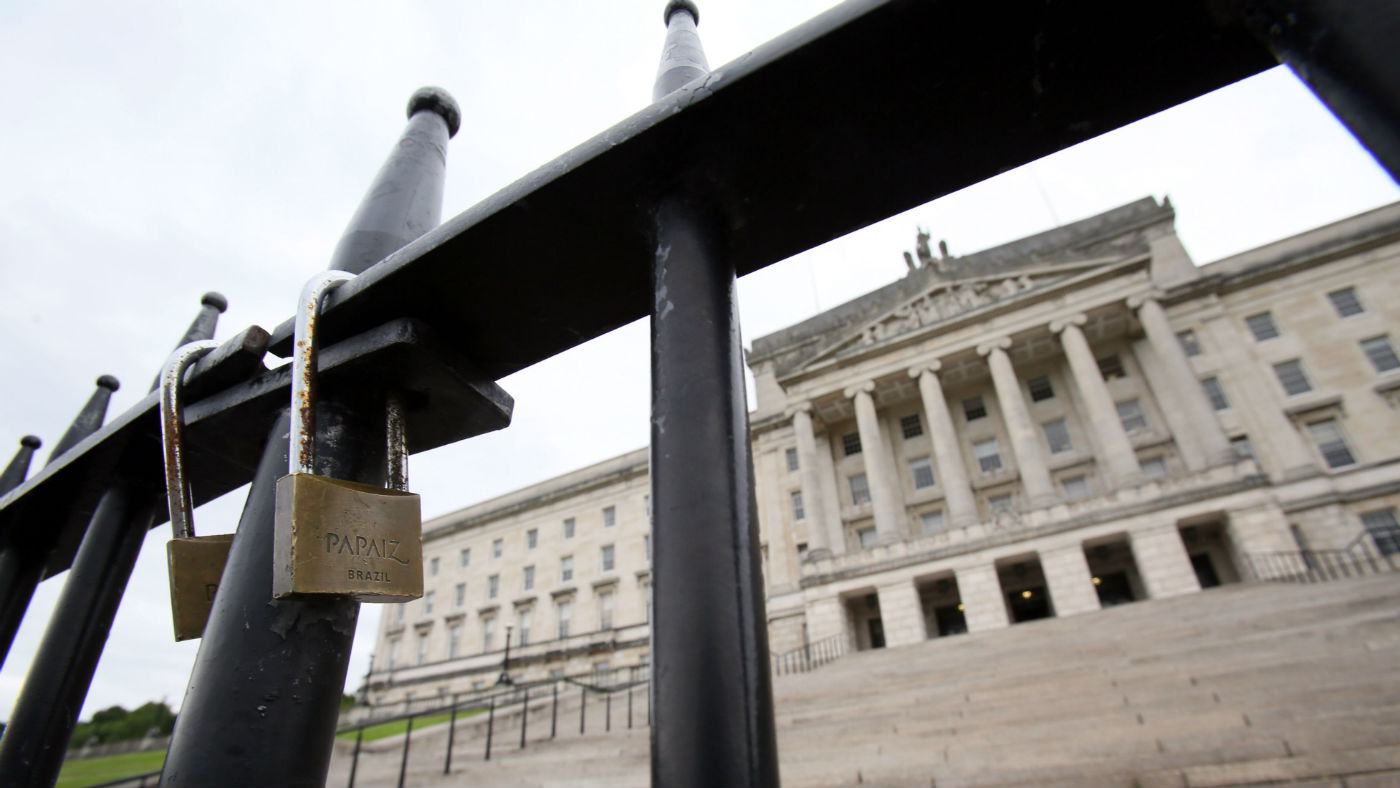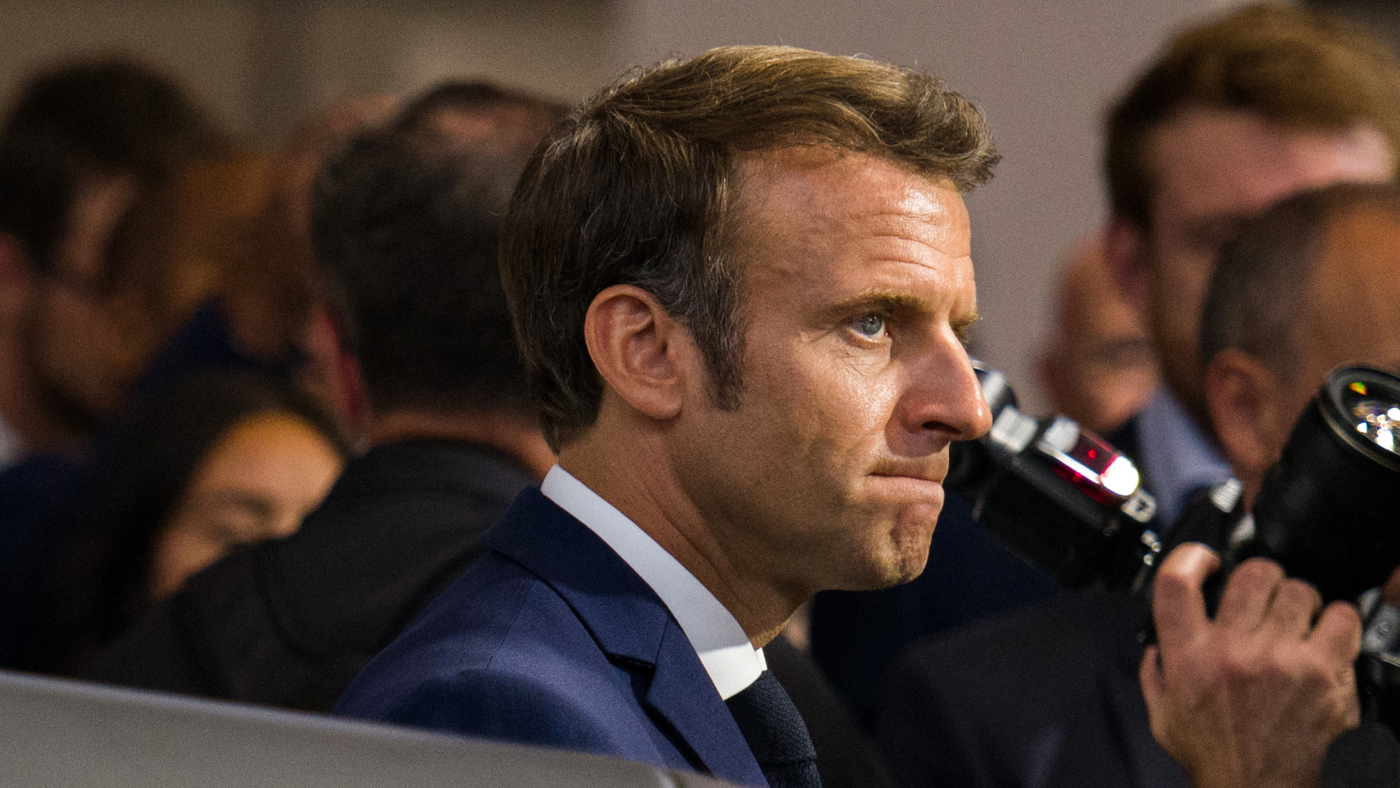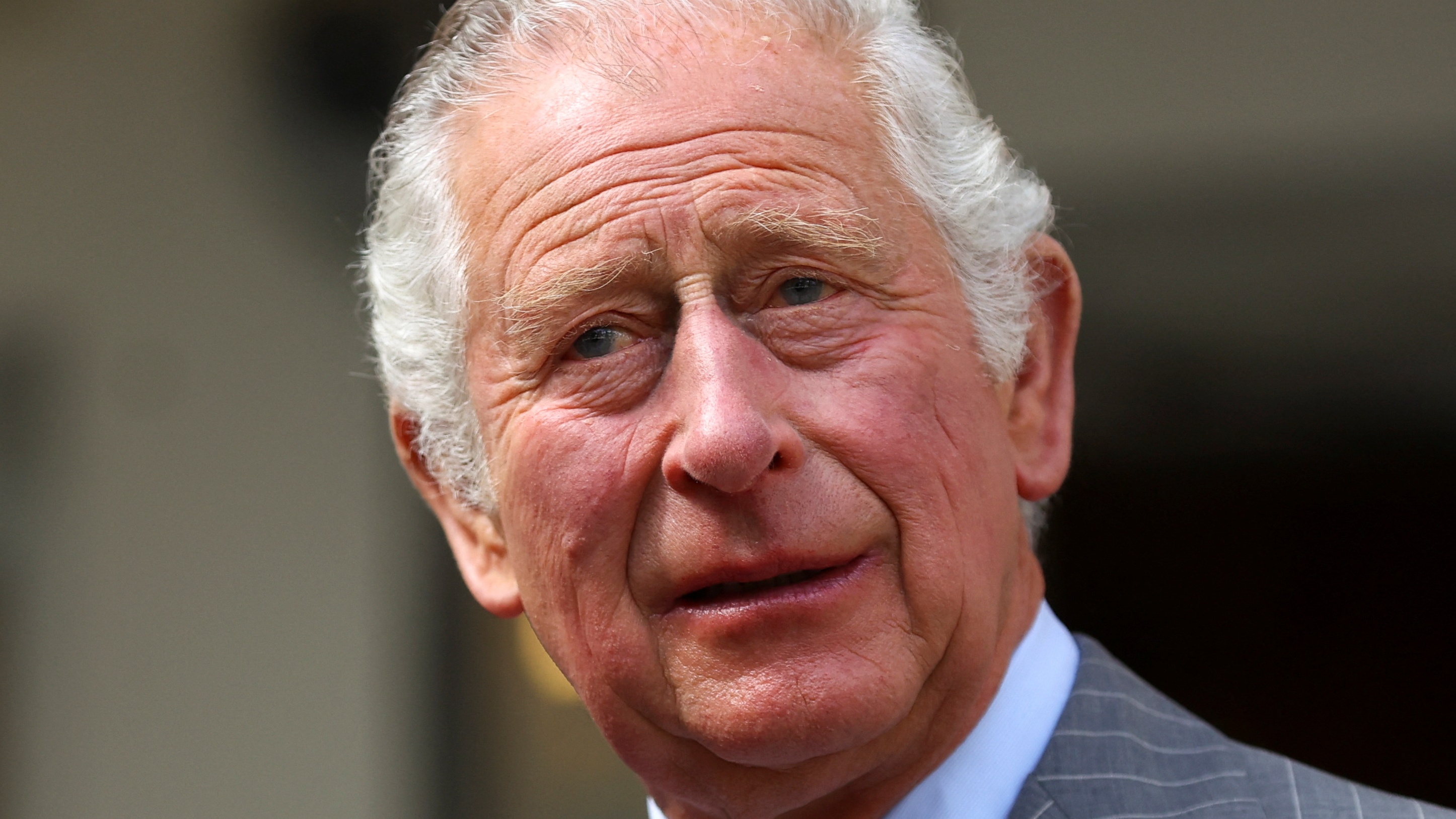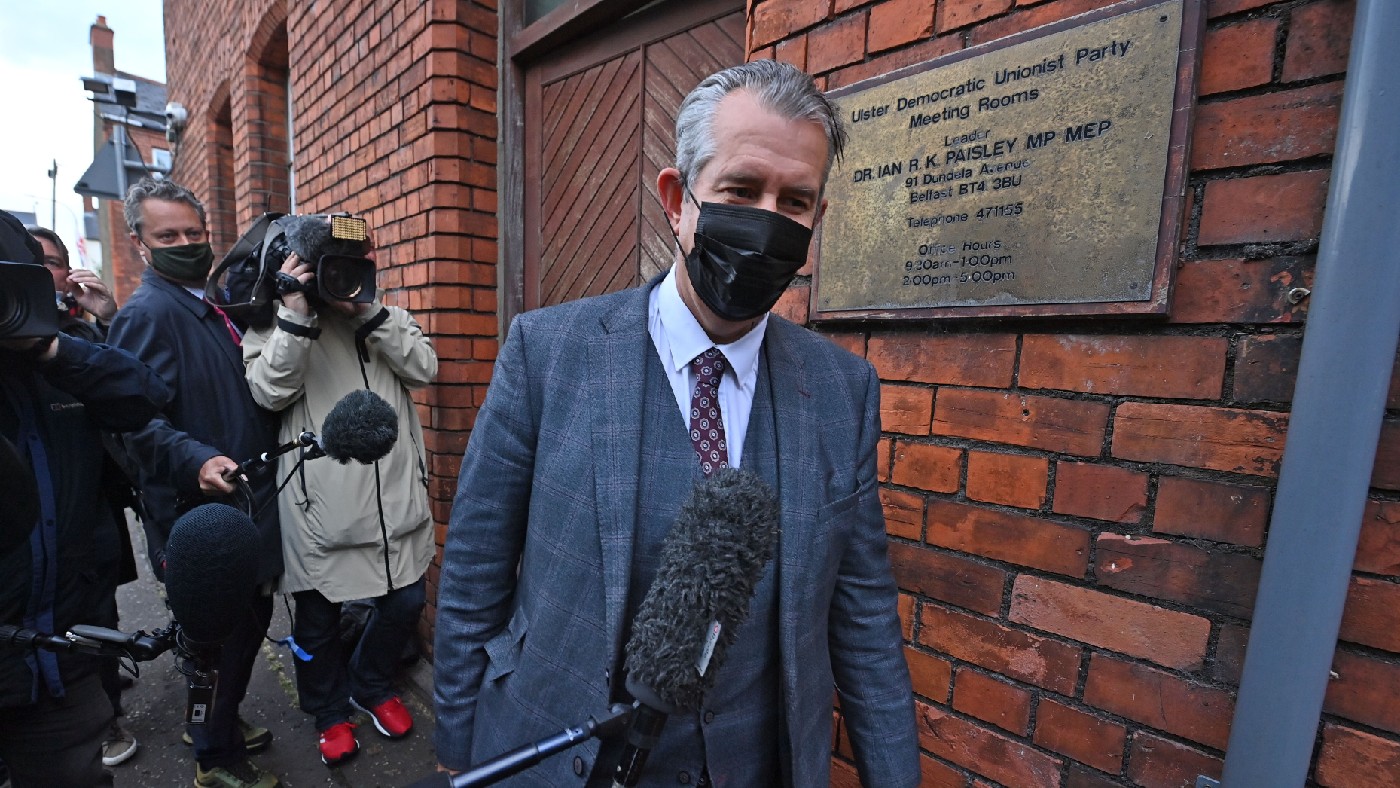Northern Ireland: new faces, old problems
A year without a political executive has left the country’s public services in crisis

A free daily email with the biggest news stories of the day – and the best features from TheWeek.com
You are now subscribed
Your newsletter sign-up was successful
This week marks the one-year anniversary of Sinn Fein leader Martin McGuinness' resignation as Northern Ireland’s deputy first minister - sparking the end of a decade of power-sharing in Stormont.
McGuinness, who died in March, stepped down in protest at the role of the DUP first minister, Arlene Foster, in a failed renewable energy scheme dubbed the “cash for ash” scandal.
A year on, “the power-sharing institutions remain mothballed”, says The Guardian. The lack of a political executive at Stormont has cast a shadow on the Good Friday Agreement, which will be 20 years old this April.
The Week
Escape your echo chamber. Get the facts behind the news, plus analysis from multiple perspectives.

Sign up for The Week's Free Newsletters
From our morning news briefing to a weekly Good News Newsletter, get the best of The Week delivered directly to your inbox.
From our morning news briefing to a weekly Good News Newsletter, get the best of The Week delivered directly to your inbox.
“The agreement is a rock for the province and a beacon to ethnically and nationally divided societies around the world,” says The Guardian. “Yet British politics is in danger of allowing the agreement to falter through neglect.”
This week, the Conservative government was forced to appoint a new Northern Ireland Secretary, after James Brokenshire resigned from the role, blaming ill health. His chosen successor, Karen Bradley, had never even been to Northern Ireland before her appointment, but is now tasked with perhaps the most difficult prospect Theresa May’s government faces, Brexit and all - returning a devolved government to Northern Ireland.
“We need prophetic, imaginative and courageous leadership,” the influential Bishop of Down and Connor, Dr Noel Treanor, said last week.
“To build a viable future for us all, we need urgently and creatively to put our hands together to the plough and to abandon the crippling and stagnating forces of fear and suspicion in the name of building a new future for all citizens, and especially for the weakest and the newly arrived in our society.”
A free daily email with the biggest news stories of the day – and the best features from TheWeek.com
But how has the lack of a Northern Ireland executive affected life for the people who live there, and what does the future hold for them?
What are the effects of the power-sharing collapse?
Without a functioning executive, many decisions on spending and public projects have simply not been taken.
Northern Ireland’s hospitals have been so stretched in recent weeks that, on New Year’s Eve, managers at Antrim Area Hospital called in St John’s Ambulance volunteers to assist. “Those at the emergency coalface said the situation ‘was never worse’ in Northern Ireland,” says the The Irish Times.
Janice Smyth, director of the Royal College of Nursing in Northern Ireland, told the newspaper that the Christmas and New Year crisis is reflective of a wider malaise in the North’s health service. Nursing provision is 10% down on what is required, with 1,500 additional nurses needed.
Smyth believes that were a Northern Executive and Assembly still operating, any self-respecting minister for health would be too embarrassed – and face too much public and political pressure – to tolerate the idea of St John’s Ambulance having to ride to the rescue “as a least-worst option”.
“There is no political leadership in the health system,” she says.
The picture is equally bleak across other public services.
Just before Christmas, a briefing paper by the Department of Finance warned that there could be “significant staff reduction” across the wider justice system, including in the Police Service of Northern Ireland (PSNI) and the prison service – “this at a time when the dissident threat remains alive”, says The Irish Times.
Mark Lindsay, head of the North’s Police Federation, which represents PSNI officers, says the PSNI stands to “lose £14m in funding on top of the £180m already lopped off the budget in the past four years”. The proposed budget cuts could equate to annual funding for 280 officers, he adds.
What can Karen Bradley do?
Bradley faces a tall order. “It is hard to imagine that a bright Tory fortysomething would look on Stormont as anything other than a Garden of Gethsemane posting - one to be endured more in hope rather than expectation,” says the Irish Examiner.
Dublin and London are expected to try to make yet another push to persuade the DUP and Sinn Fein to settle their differences this week. “A year on from the resignation of the late Martin McGuinness, and facing into a new year and the 20th anniversary of the Belfast Agreement, on 10 April, it must be said there is precious little expectation that they will succeed,” says The Irish Times.
Bradley “must show her mettle, get a grip, and ensure that power-sharing is back in business in time for April’s 20th anniversary of the peace agreement”, says The Guardian.
-
 Sepsis ‘breakthrough’: the world’s first targeted treatment?
Sepsis ‘breakthrough’: the world’s first targeted treatment?The Explainer New drug could reverse effects of sepsis, rather than trying to treat infection with antibiotics
-
 James Van Der Beek obituary: fresh-faced Dawson’s Creek star
James Van Der Beek obituary: fresh-faced Dawson’s Creek starIn The Spotlight Van Der Beek fronted one of the most successful teen dramas of the 90s – but his Dawson fame proved a double-edged sword
-
 Is Andrew’s arrest the end for the monarchy?
Is Andrew’s arrest the end for the monarchy?Today's Big Question The King has distanced the Royal Family from his disgraced brother but a ‘fit of revolutionary disgust’ could still wipe them out
-
 Roman-era Brits kept lap dogs
Roman-era Brits kept lap dogsfeature And other stories from the stranger side of life
-
 ‘Boris Johnson measures success in biceps rather than brain power’
‘Boris Johnson measures success in biceps rather than brain power’Instant Opinion Your digest of analysis from the British and international press
-
 ‘France looks more ungovernable than ever’
‘France looks more ungovernable than ever’Instant Opinion Your digest of analysis from the British and international press
-
 ‘Britain needs a democratic monarchy’
‘Britain needs a democratic monarchy’Instant Opinion Your digest of analysis from the British and international press
-
 The Week Unwrapped: Afghanistan, Florida and Northern Ireland
The Week Unwrapped: Afghanistan, Florida and Northern Irelandpodcast Can the World Bank set the Taliban straight? Why is Florida saying ‘don’t say gay’? And what can we learn from the last trials of the Troubles?
-
 ‘Riding high in May, shot down in June’: the DUP implosion explained
‘Riding high in May, shot down in June’: the DUP implosion explainedSpeed Read The rule of Edwin Poots is now history, after only 21 days, following a revolt by the Democratic Unionist Party’s Assembly members and MPs
-
 The Week Unwrapped: Fuel protest, Danish spying and living to 150
The Week Unwrapped: Fuel protest, Danish spying and living to 150podcast How are oil shareholders changing the climate debate? Is Copenhagen a US stooge? And could we really double human lifespans?
-
 The Week Unwrapped: Fashion for rent, a chip shortage and euthanasia
The Week Unwrapped: Fashion for rent, a chip shortage and euthanasiapodcast Will we start borrowing clothes instead of buying them? Why has the world’s supply of microchips dried up? And has the tide turned on assisted dying?